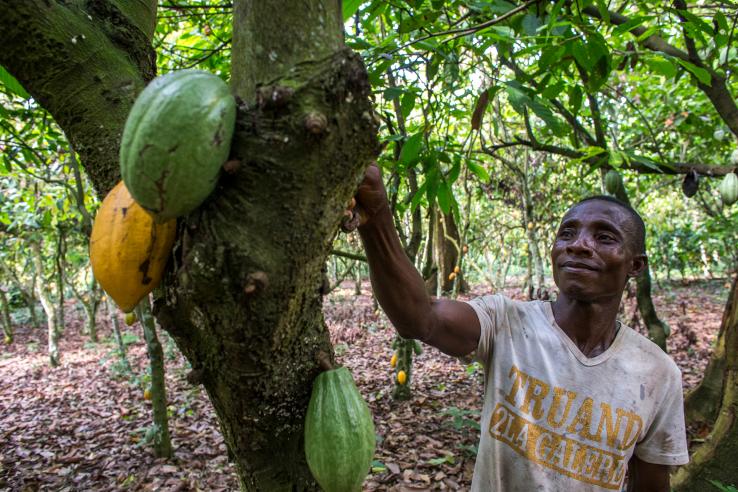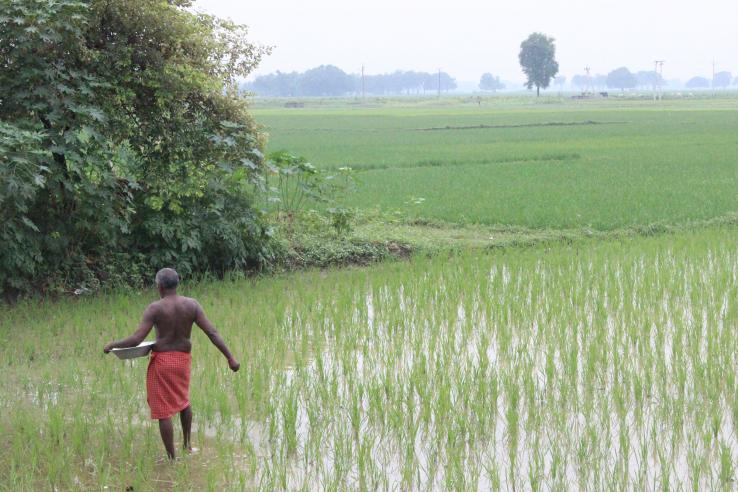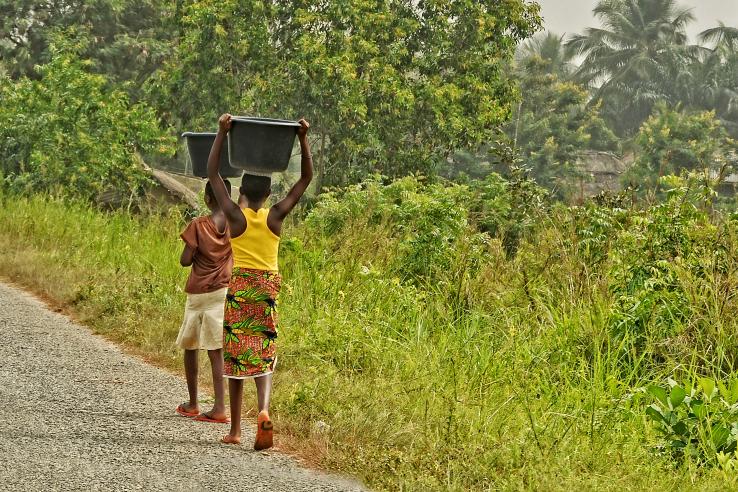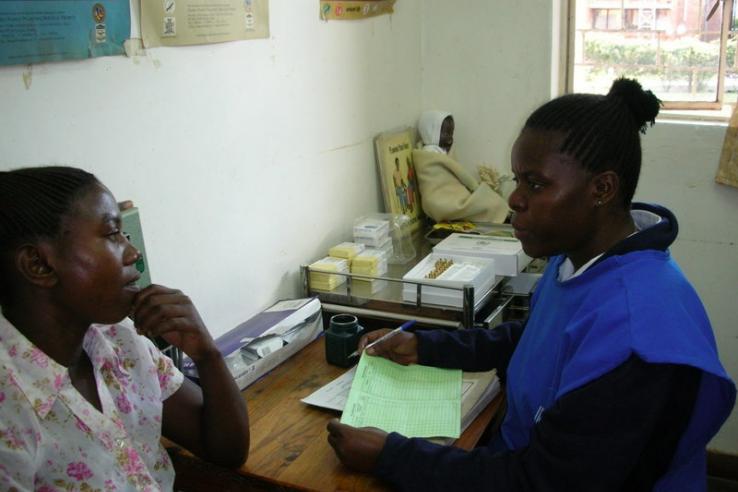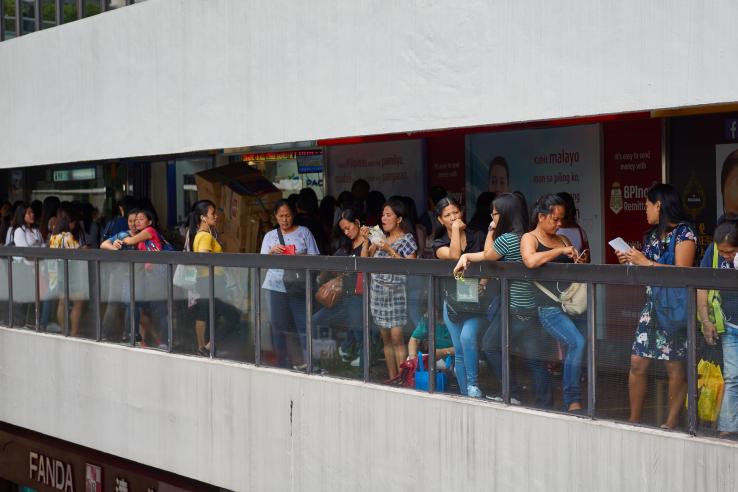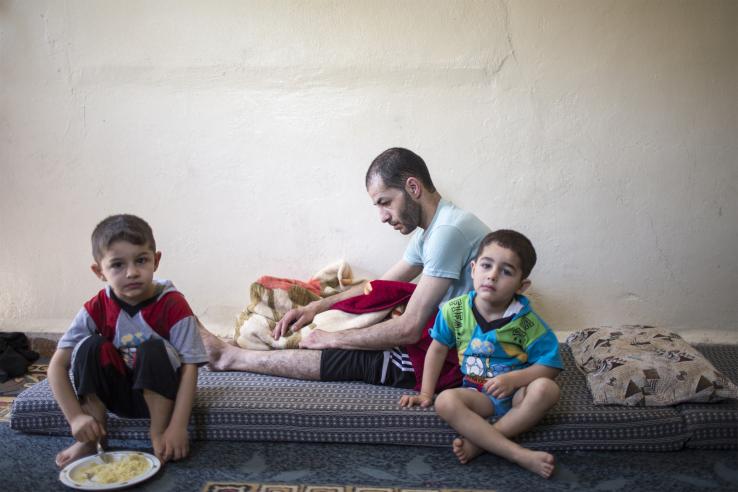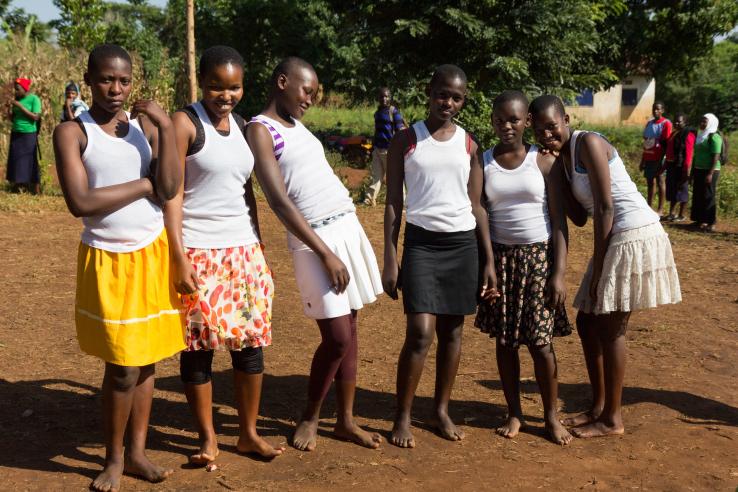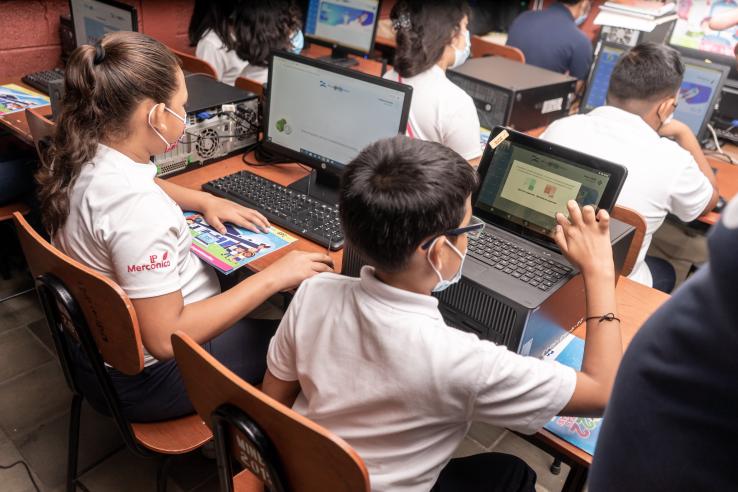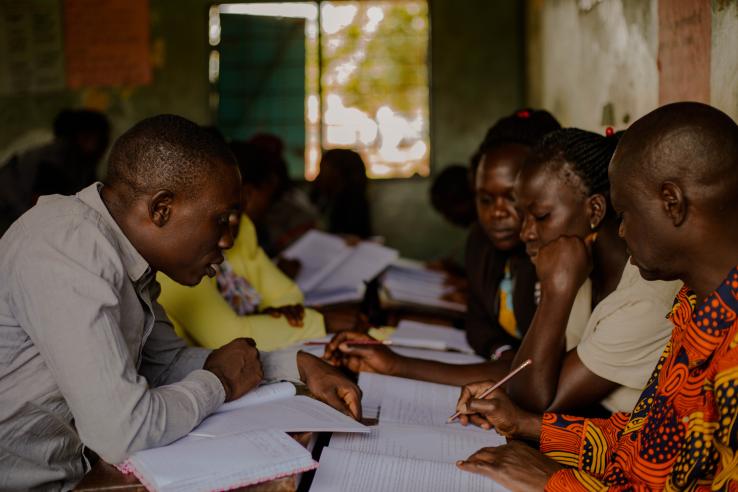Displaying 421 - 435 of 1291
Evaluation
In order to measure the level of competition among traders in Sierra Leone’s cocoa market, researchers conducted a randomized evaluation to test the impact of delivering subsidies to cocoa traders on prices that traders paid to cocoa farmers. While the bonus payments did not affect the prices paid to farmers, it did lead the traders to more frequently offer credit through advance payments to farmers. These results suggest that Sierra Leone’s agricultural trading sector was competitive, meaning that all traders offered similar prices to farmers.
Evaluation
If female managers are more likely to hire women, gender-balanced hiring committees may help promote parity in the long run. Using data from public examinations to enter the Spanish judiciary, researchers found that female candidates were less likely to succeed in the public examinations when evaluated by mixed-gender committees than by all-male ones, while male candidates fared better with mixed committees.
Evaluation
In India, researchers conducted a randomized evaluation to test how the provision of rainfall index insurance affected farmer production decisions, focusing on the decision to grow cash crops. They found that providing insurance led farmers to shift production towards higher-risk, higher-return cash crops.
Evaluation
Researchers partnered with the Government of Paraguay to measure the impact of a new monitoring technology—GPS-enabled cell phones—on the job performance of agricultural extension agents (AEAs). Overall, cell phones improved AEAs’ performance by increasing the share of farmers visited, and researchers found that supervisors possessed useful information regarding which AEA’s performance would improve the most from phone-based monitoring.
Evaluation
Researchers conducted a randomized evaluation to measure the impact of having a roommate who drank alcohol frequently before college on college students' grade point averages (GPAs). Results show that, while female students' GPAs were not affected by their roommate's drinking prior to college, male students' GPAs were significantly reduced by being assigned to a roommate who drank frequently before college.
Evaluation
Researchers worked with Innovations for Poverty Action and the University of Ghana Medical School to design, implement, and conduct a randomized evaluation of the impacts of a group CBT curriculum on low-income individuals in rural Ghana. CBT improved participants’ mental and physical well-being, socio-emotional and cognitive skills, and economic outcomes two to three months later. Results held true whether participants had reported mental distress before the program or not, suggesting that CBT has the potential to address both mental health vulnerability and participants’ mental bandwidth regardless of mental health status.
Evaluation
Researchers conducted a randomized evaluation to test whether the position of a trained lead farmer within a community’s social network affected other farmers’ decisions to adopt a new agricultural technology in Malawi. Results suggest that having access to multiple lead farmers/central individuals has the potential to increase adoption and speed the diffusion process of the technology.
Evaluation
Despite recent economic growth in Bangladesh, food insecurity remains widespread. Researchers evaluated the impact of an agricultural training program for farmer groups on technology adoption in rural Bangladesh, and investigated what drives adoption and who is affected by the training, both directly and indirectly.
Evaluation
Researchers in Zambia evaluated the impact of teaching husbands about the dangers of maternal mortality on their acceptance of family planning methods.
Evaluation
Researchers evaluated the impact of a financial literacy program for Filipino domestic workers based in Singapore on their financial knowledge, behavior, savings, and remittances. While there was no evidence that being invited to join the program had any impact on financial knowledge or behavior, program invitees reported reductions in self-reported savings, as well as more disagreements with family members over how to spend remittances. The program may have encouraged participants to seek more accurate information on household spending and saving.
Evaluation
Researchers are conducting a randomized evaluation of a subsidized housing assistance program for refugees in Jordan to assess its impact on their economic outcomes, psychological well-being, long-term migration decisions, and social integration into their host community.
Evaluation
Researchers are conducting a randomized evaluation to test the impacts of group-based therapy with and without a one-time lump sum cash transfers on the mental health and employment outcomes of adolescent girls in Uganda.
Evaluation
In Colombia, researchers evaluated the impacts of a national computer distribution program (Computers for Education) on student test scores, time spent on learning, and attitudes towards education. The program had no effect on math or Spanish test scores, hours of study, or perceptions of school. Researchers found that, in practice, teachers only used the computers to teach computer usage skills, rather than the range of subjects for which they were intended.
Evaluation
Researchers shared information on students’ relative academic standing among university students in Spain to evaluate the impact of this information on student performance and satisfaction. Providing students with information on their relative standing led to a short-term decrease in academic performance and an increase in satisfaction.
Evaluation
Researchers, in partnership with Kimanya Ngeyo Foundation for Science and Education in Uganda, evaluated the impact of a program that trained teachers to learn like scientists: posing questions, framing hypotheses, and using real-world experience wherever possible. Researchers found positive impacts on classroom dynamics, teacher pedagogy, student learning, and creativity, with impacts on student learning sustained for four years.
